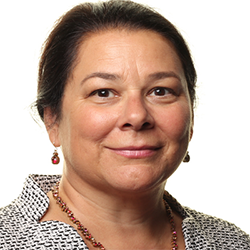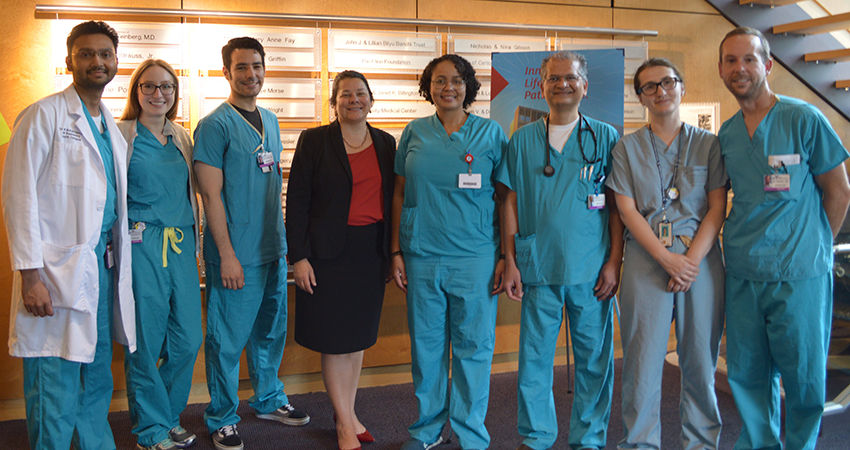Director’s Message

All academic medical centers are challenged to recruit and train the best young doctors. About half of our patients are women, yet cardiology remains a male-dominated specialty. As editor in chief of Circulation: Heart Failure, I recently had the opportunity to publish an important survey of Advanced Heart Failure cardiologists, “Perceived Generational, Geographic, and Sex-Based Differences in Choosing a Career in Advanced Heart Failure,” an article accompanied by editorials written by three female cardiologists from different regions of the world. I was privileged to write the U.S. perspective.
While the journal discussion focused on heart failure cardiologists, the issues raised apply to many medical professionals choosing their next career training steps, such as internal medicine trainees making the decision to pursue general cardiology. If we want to recruit and train a more diverse group of cardiologists, particularly women and under-represented minorities, we need to acknowledge the current state of the profession, change some perceptions, and think creatively about the cardiologists’ career of the future.
The survey published in the journal identified four themes, and I in my editorial I challenged the profession’s current leaders to think strategically to increase the talent pool and diversity of heart failure professionals. The themes are modified here for cardiology in general:
- Cardiology is a Rewarding Career – I really believe that we have the best job in the world. The partnerships formed with patients in pursuit of better cardiovascular health are incredibly rewarding. To increase the talent pool choosing cardiology, we need to increase recognition of this joy among medical students and internal medicine residents considering specialization.
- The Demanding Nature of Cardiology – While caring for patients who have complex conditions is rewarding, it also carries a toll of responsibility and significant time dedicated to the patient and family members. Perceived poor work-life balance is a reason talented physicians state for not choosing cardiology. Our trainees must see that many cardiologists achieve highly satisfactory life balance. We should advocate for multidisciplinary healthcare teams that provide great care for cardiac patients while helping to prevent provider burnout. This is particularly true in academic practices where we care for the very sickest patients. Leaders need to ensure that our organizations sufficiently support cardiovascular professionals who will care for increasing numbers of patients in the coming decades.
- Sex-based Discrimination – Cardiology remains markedly male dominated. More women are choosing advanced heart failure, where training programs are now one-third women, and both men and women answering the survey perceived heart failure as an inclusive specialty. But women who responded to the survey perceived more discrimination in terms of pay and promotion for taking family leave, despite that fact that men took advantage of leave policies in equal percentages. Workplace discrimination and micro-aggressions remain common in cardiology. There is significant movement on the part of women in cardiology to combat this, and female leaders have a growing voice. Check out #WomenAs1 and #TheFaceOfCardiology
- Sponsorship of Future Leaders – Sponsorship is distinct from mentorship. While mentorship provides an entree to the profession, sponsorship provides a path to the top. Current leaders in cardiology must intentionally and effectively help early-career colleagues build professional networks. It is natural for all of us to sponsor those who remind us of ourselves. However, to grow a more diverse world of cardiologists, we must consider those who may not immediately come to mind, who may be the leaders of the future, and not necessarily ones who look like us.
As the director of the UA Sarver Heart Center, I am working to be an enlightened leader, to sponsor talented early-career cardiologists and grow the diversity in our cardiology division. When I started in 2014, we had 22 cardiologists, including four women (18 percent). Now we have 30 cardiologists; nine or 30 percent are women. We are very proud of the future cardiologists we are training. This year (2019), we welcomed eight new cardiovascular fellows to our training program; three are women and two are under-represented minorities (African American and Latino). These efforts provide Tucsonans with more access to cardiovascular care than ever before and a diversity of providers to better reflect our patients. This is possible because of your support. Thank you for supporting me as I continue our cardiovascular leadership in Arizona.
Nancy K. Sweitzer, MD, PhD
Director, Sarver Heart Center
Professor, Medicine, University of Arizona College of Medicine - Tucson
Chief, Cardiology
Co-director, UArizona Health Sciences Graduate Program in Clinical Translational Sciences

Dr. Nancy Sweitzer with the incoming Cardiovascular Disease Fellows, 2019.

